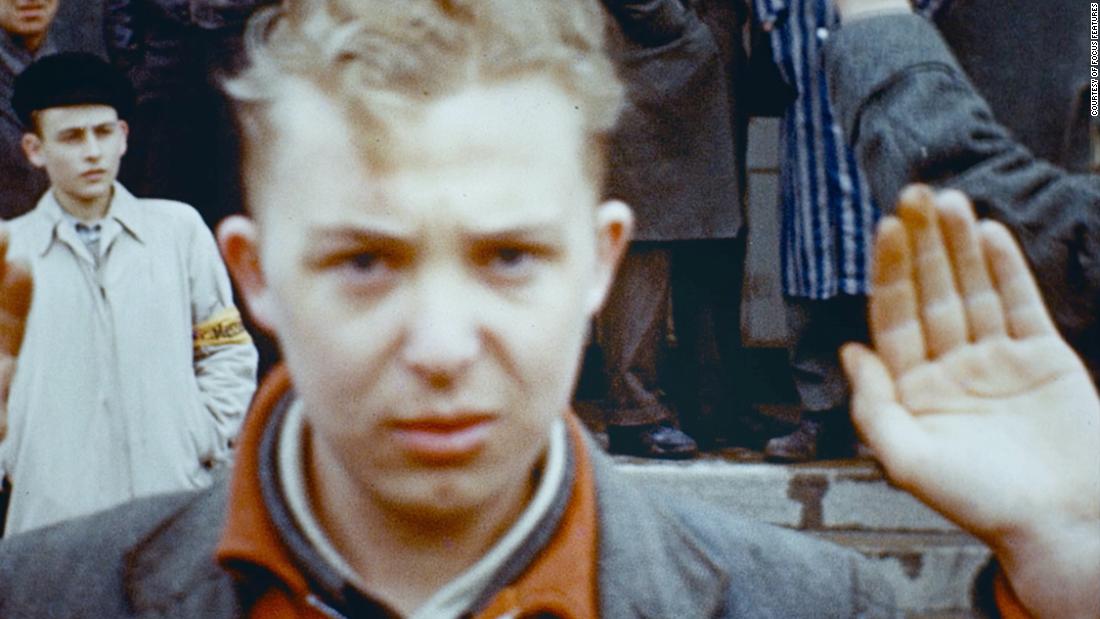The documentary presents starkly shot interviews with elderly Germans, some of whom were civilians, while others served in the army, as camp guards and as Hitler Youth during the 1930s and ’40s. Those discussions are garnished with chilling color video of children saluting a Swastika flag, or signs that translated read “Jews are not welcome here.”
The interviews find a range of responses, with the participants sometimes contradicting themselves moments apart regarding their awareness at the time about what was happening. During one session with a group of what looks like nursing-home residents, when one pleads ignorance about the camps, another quickly follows by saying it was impossible not to know.
The conversations are never really confrontational, but the questions occasionally prove telling. When a woman says she was too young to have a reaction to the persecution of Jews prior to the war and the events of Kristallnacht, the off-camera interviewer replies, “Fourteen?”
Even in these recent discussions, the subjects can still remember the “hiking songs” they sang, and frequently express pride in serving in elite units of the Waffen-SS.
“I didn’t feel any pity for the Jews,” one says, while another notes that at 16, “When you’re caught up in it, you keep your mouth shut.”
A few of those interviewed are notably unapologetic, while others express shame and regret. The ringing message throughout “Final Account” comes from the famous quote attributed to Edmund Burke, “The only thing necessary for the triumph of evil is for good men to do nothing.”
“Final Account” premieres May 21 in select theaters.

